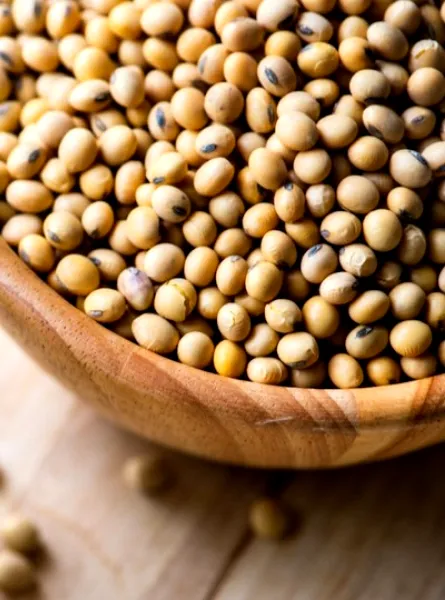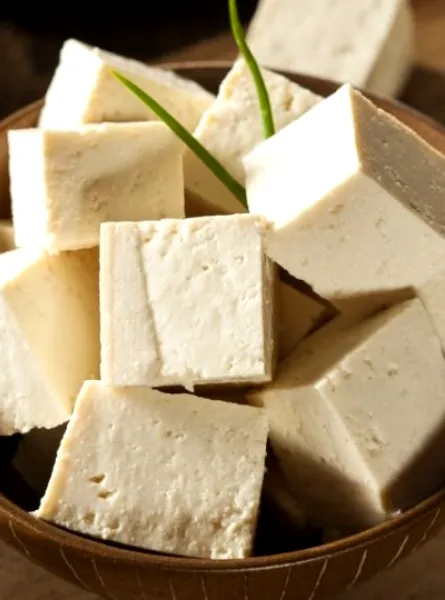
In recent years, more and more people are reducing their consumption of meat, either by becoming a flexitarian (who occasionally eats meat) or totally vegetarian. In the United States, 3.3% of the population was vegetarian in 2016 according to a survey, whereas this figure was rather 2.5% in 2000, an increase of 130% in 16 years. In Canada, about 4% of the population is vegetarian. This new food trend has led to the development of several tools, including a modified version of the Canadian Food Guide for Vegetarians by the Montreal Vegetarian Association.
Some vitamins and minerals may be in smaller amounts when you do not consume any animal products. Here are the nutrients to watch out for in a vegetarian diet, the foods to have in your pantry and some tips to help you through this transition.
Nutrients to Watch Out For
1. Protein: A well-planned vegetarian diet contains enough protein. On the other hand, make sure to combine the vegetable protein sources to obtain all the necessary amino acids. Legumes combined with whole grain nuts / seeds or grain products every day ensure you to have all the amino acids. Milk, eggs, soy, tempeh and fortified soy beverages are sources of complete protein.
2. Vitamin B12: The consumption of at least 2 fortified dairy products per day meets the needs of vitamin B12. On the other hand, people who do not consume any enriched product must turn to a supplement to ensure adequate intake (10ml of yeast also covers daily needs).
3. Vitamin D: Vitamin D consumption for the vegetarian person comes mainly from fortified products. The use of a supplement is often necessary, especially when the exposure to the sun is low and when you do not consume enriched product.
4. Iron: Iron from vegetable sources (non-heme iron) is less absorbed than iron from the animal kingdom. Vegetarians usually need to consume twice as much iron as non-vegetarians because of a lower absorption of non-heme iron. In addition, several factors limit the absorption of iron, such as calcium, phytates, oxalates and tannins. Adding a rich vitamin C food (lemon, orange, pepper, kiwi, cauliflower, etc.) to each meal maximizes the absorption of non-heme iron.
5. Zinc: Phytates, oxalates, fibers and the absence of animal proteins limit the absorption of zinc. The best sources of zinc are wheat germ, legumes, pumpkin seeds and sesame seeds.
6. Omega-3: The main sources of omega-3 are from marine sources. Plant sources are less concentrated in omega-3s, but are found mainly in linseed, soybean or canola oil, wheat germ, walnuts, seeds (flax, hemp, chia, pumpkin), algae and fortified products (omega-3 eggs).
Key Foods
Nuts and seeds: Protein, iron, zinc, omega-3
Enriched soy beverage: Calcium, Omega-3, Vitamin D, Vitamin B12, Protein
Tofu: Omega-3, calcium, iron, proteins, zinc
Vegetables: Iron, proteins
Nutritionnal yeast: Vitamin B12
Green molasses: Iron, calcium
Wheat germ: Zinc, Omega-3
Tips and Tricks
1. Start with 1 meatless meal a week, inspired by our vegetarian recipes!
2. Let yourself be inspired by recipes from other cultures that often include vegetarian meals (Indian, Moroccan, Mexican cuisine ...)
3. Start by replacing half of the meat in your favorite recipes with tofu or legumes (shepherd's pie, spaghetti sauce, chili ...)
4 Although often higher in sodium, fake meats can be a good idea to start (vegetarian sausages, minced meat ...)
Whether you decide to become a vegetarian, vegan, flexitarian or other, this transition requires good preparation to reduce the risk of dietary deficiencies. A consultation with a nutritionist is often necessary to ensure adequate food intake, so do not hesitate to contact us!
References
http://extenso.org/article/les-proteines-au-coeur-du-regime-vegetarien/
https://opdq.org/mnc/vegetarisme/ http://www.passeportsante.net/fr/Nutrition/Regimes/Fiche.aspx?doc=vegeta...
http://www.vrg.org/nutshell/Polls/2016_adults_veg.htm Dietitians of Canada and American Dietetic Association. 2003. Position of the American Dietetic Association and Dietitians of Canada: vegetarian diets. Can J Diet Pract Res 64(2): 62-81






